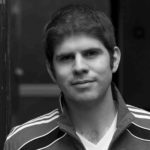 Being a doctor should be about being human, and yet it is one of the most dehumanising jobs of all. As I sat in NESTA’s People Powered Health conference recently and learnt about all the amazing individuals and organisations dedicated to empowering people to take control of their own health, I couldn’t help thinking that somewhere along the line we’ve made a terrible mistake.
Being a doctor should be about being human, and yet it is one of the most dehumanising jobs of all. As I sat in NESTA’s People Powered Health conference recently and learnt about all the amazing individuals and organisations dedicated to empowering people to take control of their own health, I couldn’t help thinking that somewhere along the line we’ve made a terrible mistake.
We always talk about the doctor-patient relationship—the need to work with, relate to, and help the person in front of us. As doctors we see a variety of people in various settings at key points in their lives. We’re in a unique position to suggest change and for them to engage with their health. We can nudge them to healthier lifestyles and guide them to personalised and effective treatments. We can empower them to ensure that they enjoy the maximum quality of life for as long as possible. We can, but we don’t.
As a junior doctor I’m frustrated. I work in an environment that suffocates my ability to treat individuals. I spend 95% of my time with the computer instead of the patient. I identify them by their bed number or by their illness, I treat their results remotely, and at best have a brief clinical chat and a hand hold. I treat patients like patients and not people.
There are many reasons why this is the case, but fundamentally medicine has gone in a direction that’s taken it away from personal care in favour of depersonalised guidelines, academic elitism, and bureaucratic complexities that simmer behind the scenes. It’s clear that if the NHS is to survive, then we need to be joining the wider quest of keeping people healthier for longer.
None of this is new, and yet we do very little while all around us other parts of the wider healthcare sector are striving to make serious adjustments. The problem is that doctors are the keystone to this success—the crucial point of contact that sets a patient down these branching pathways—and yet we rarely do this. We don’t easily look outside the NHS for solutions and in so doing we fail ourselves, we fail our patients, and we fail healthcare.
Of course, most of this isn’t our fault and I know that most doctors share these frustrations, but it is never too late to strive for change. I’d start by looking at these three things:
• The role of a doctor. It must change. Period. If we continue to have a hierarchical system whereby newly qualified doctors barely use a single skill they’ve accrued at medical school then we’re doing something wrong. If the majority of a junior doctor’s job is doing tasks that you don’t need a medical degree to do, then we’re wasting a generation’s skills. We need to be using our resources correctly, both in terms of technology and staff, so that we can free up the doctor to spend more time with the people he or she is treating.
• Medical school. The medical school bubble—full of type A, highly strung, high achieving, multitalented individuals—is an unhealthy environment. Being a doctor is all about communication so why don’t we focus more on drama, rhetoric, and philosophy? We often champion having “well rounded” individuals and pluck them from school into medicine, where we then bash them into a square hole and knock the creativity and individuality out of them. In a discipline that needs to be more about communication and empathy, this is a disaster.
• The environment. This needs to change not just for the sake of healthcare staff and their low morale, but for the patients. They can feel dehumanised because we don’t talk with them, we sit them in bays, we dress them in gowns, and allow them to stare at nothing. We make them feel like they are machines on a conveyor belt, when they should be treated as individuals.
In the wider world there is a remarkable amount of progress happening to empower individuals both before and at their time of need. This kind of work can lift the burden on the NHS drastically and should be embraced. If doctors are not at the forefront of this movement then we are in danger of becoming a glorified “one stop shop” and middleman to the wider world. It’s inevitable that our role will change, so why not make sure it’s on our terms?
If we’re allowed to communicate properly and engage the creative aspects of our nature, then we can begin to effect change and change what it means to be a doctor in the 21st century. If we can keep ourselves relevant, then we can help to ensure that every single person’s healthcare is the best it can be.
Daniel Grant came to medicine as a graduate, having previously worked in the arts and sports industries. He has special interests in preventative medicine and space medicine.
Competing interests: I have read and understood BMJ policy on declaration of interests and declare the following interests: None.
